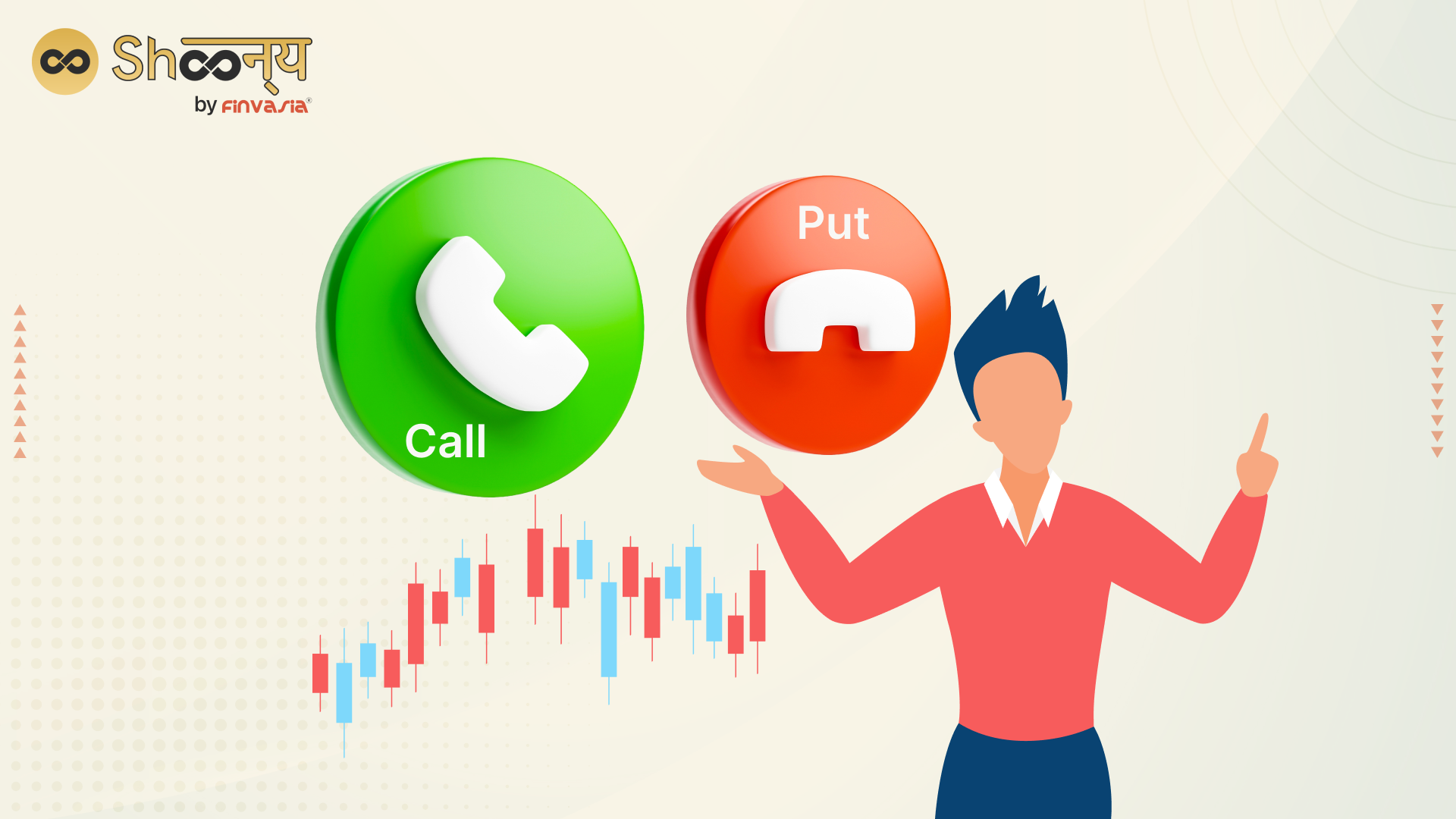In the stock market, there are two types of options: call options and put options. When we expect stock prices to rise, we use a call option; when we expect stock prices to fall, we use a put option.
What are the Options?
Options are derivative contracts with no intrinsic value and receive their value from the underlying asset’s value. The underlying asset can be stocks, currencies, commodities, or anything else. An options contract grants the investor the right, but not the duty, to purchase or sell the underlying asset at a given price and by a specific date, that is, strike price.
Types of Options
Types of options are:
- Call Option
- Put Option
Call Option
In the case of options, the buyer can exercise or cancel them. The premium paid limits the option buyer’s loss.
In the call option, when you purchase, three events may occur when it expires:
- When the Market Price > Strike Price = Profits/Gains
- When the Market Price < Strike Price = Loss
- And when the Market Price = Strike = No profit, no loss
In the call option, when you sell, three events may occur when it expires:
- When the Market Price > Strike Price = Loss
- When the Market Price < Strike Price = Profits /Gains
- And when the Market Price = Strike Price = Profit occurs in the form of a premium.
Put Option
A put option grants the investor the right, but not the responsibility, to sell the underlying asset at a specific price before or on the expiration date.
In the put option, when you purchase, three events may occur when it expires:
- When the Market Price > Strike Price = Loss
- When the Market Price < Strike Price = Profits /Gains
- And when the Market Price = Strike = Loss of the premium paid.
In the call option, when you sell, three events may occur when it expires:
- When the Market Price > Strike Price = Gains / Profits
- When the Market Price < Strike = Loss
- And when the Market Price = Strike Price = Profit occurs in the form of a premium.
What is the difference between a Call Option and a Put Option?
- Objective- The buyer has the right but not the responsibility to purchase a call option. On the other hand, a put option offers the buyer the right but not the responsibility to sell.
- Expectation- A call purchaser believes that the stock price will climb. In contrast, a put option buyer expects the stock price to decrease.
- Gains- The advantages for a call option buyer are limitless. On the other hand, the gains for a put option buyer are limited because the stock prices cannot fall to zero.
- Loss- The loss for a call option buyer is bound to the premium paid. A put option seller’s maximum loss is the strike price minus the premium.
Key Takeaways:
Risk and Reward:
Call options limit the risk to the premium paid, providing potential for substantial gains.
Put options offer limited risk, as the maximum loss is the premium paid, while enabling profit from declining asset prices.
Expiration Date:
Both call and put options have expiration dates, beyond which the options cease to be valid.
Liquidity and Open Interest:
Higher liquidity and open interest indicate active trading in options, enhancing ease of entry and exit.
Important Considerations:
Strike Selection:
Traders must carefully choose the strike price based on their market outlook and risk tolerance.
Volatility and Premium:
High volatility increases option premiums, reflecting increased risk and potential rewards.
Conclusion
Put and Call option is a financial contract between the buyer and the seller. The buyer has the right but not the obligation to purchase the underlying asset at the expiration date. If you want to trade in options, open an account with Shoonya today. Shoonya is a zero-commission trading platform where you can trade hassle-free. It has access to more than 100 technical indicators that analyze, indicate, and give the best match for investors and help you make wise decisions.
FAQs
Generally, options can be exercised before expiration, but American-style options offer more flexibility in this regard compared to European-style options.
Options are available on specific stocks and indices approved by the exchanges. Highly liquid stocks often have options trading available.
______________________________________________________________________________________
Disclaimer: Investments in the securities market are subject to market risks; read all the related documents carefully before investing.

